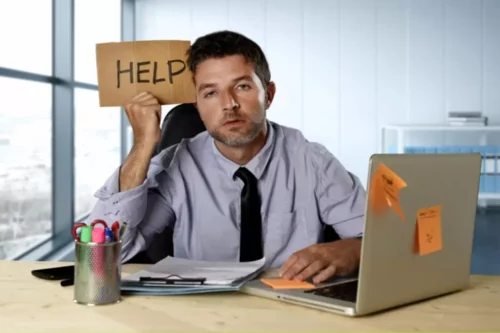Should I Go Back To Rehab After A Drug Or Alcohol Relapse?

During this stage, you will not even be thinking about using drugs or alcohol. Instead, your emotions and behaviors are beginning to set you up for a relapse down the road. Many different philosophies https://ecosoberhouse.com/ about recovery and relapse exist, often with opposing tenets, which can leave you confused about which is correct. For some, relapse is viewed in a negative light and indicates weakness.
How To Deal with a Relapse
This is only one of many reasons why it’s important, throughout your time of healing, to be completely transparent in all your interactions. Many addicts mistakenly think that going to treatment alone will be enough to keep them sober. Another enemy of addicts is the fact that in early recovery, many addicts feel so good and so strong that they don’t believe relapse is possible.

Is Going Back to Rehab the Only Option After a Relapse?
There is no one-size-fits-all answer for how much rehab will cost. Most rehab facilities do not charge patients on a sliding scale based on their income. It is essential to make sure you have adequate insurance coverage before entering treatment, as the financial burden of recovery may be more than you can handle. The roots going back to rehab of relapse lie not in external circumstances but rather in the individual’s thoughts and perceptions. Your mind gives you the green light to stop going to group sessions or therapy, withdraw from friends and family, and stop taking care of yourself. Reach out to a treatment provider for free today for immediate assistance.
Should I Go Back to Rehab?
Understand the steps, consult your doctor, research facilities, choose the right program, check insurance, and spot quality centers. They can also be a source of strength and support if you’re ready for recovery. You shouldn’t return to rehab if you feel there is no reason to do so.
- If your pattern appears more like a “slip” and not a relapse, reach out to your counselor or sponsor, find a meeting, or schedule an outpatient session.
- If you or a loved one experienced a relapse after a period of sobriety from drugs and alcohol, you can benefit from an addiction treatment program.
- But many researchers, clinicians, and scientists agree willingness to get treatment and get better leads to success.
- Outpatient treatment programs are more affordable and can treat an AUD with little impact on daily life.

Several components, such as a broad range of approaches, personalized care, and compassionate staff, set rehabs up for success. Care that aligns with your preferences and culture can also improve your chances of success. For example, if spirituality plays an important role in your life, treatment that includes that will likely resonate better with you. I’ve had experience with recovery since 1996 and began working in the field in early 2004. John’s strengths are being able to work on almost any area of the Elevate program. I have been trained throughout the years in many departments in case anything comes up.

Spending All Your Time on Drugs or Alcohol
Sometimes, you unknowingly begin taking steps toward a relapse weeks or months before actually drinking or using drugs. Certain thoughts, feelings, and events may trigger cravings and urges for drugs and alcohol, and, if not properly dealt with, may increase your chances of relapsing. Angie maintains involvement with the day to day operations, continually looking for ways to improve and innovate. Dan has been working in the substance abuse treatment industry for over 25 years. His passion is helping addicts holistically and through a blend of both western and eastern philosophies. Matt has been working in the substance abuse treatment field for 20 years.
A lack of willingness can become a setback when someone goes through the motions of rehab, gets released, and immediately goes back to substance use. While relapses don’t erase progress, they can delay long-term recovery and the benefits that come with it. Therapies are more effective when they’re delivered in a personalized treatment plan. For example, if horses scare you, equine therapy probably wouldn’t be a great fit for you.
- If you care about someone addicted to drugs or alcohol, learn about addiction, co-occurring conditions, and the various treatment options available.
- For example, some addiction treatment centers will specifically focus on those with dual diagnosis conditions.
- Rehab is much more than a substance-free place—it teaches you skills for recovery, connects you to peers, and addresses underlying causes of addiction through therapy and personalized healing.
- If the emotional and mental stages of relapse are not corrected, they will lead to the final stage of relapse.
- Additionally, a return to rehab can help you figure out what triggered the relapse to begin with, and give you specific tools to help combat the urge to resort to drugs or alcohol.
The next day, you would go to a meeting or immediately stop use again. Some addicts slip and immediately get right back into a meeting and begin the process of recovery anew. An example of relapse would be going to a party where drugs and alcohol are available, using during that party, and immediately waking up the next day and beginning a search for more drugs and alcohol. The pattern would continue until you’re full-blown into the life you were in before.

+ There are no comments
Add yours